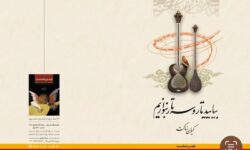
Dr. Babak Dariush
Some theorists think that the beginning of “globalization” relates to the ancient empires of Iran and Rome. But this phenomenon is often considered synonymous with the industrialization period of the world; based on this, globalization has economic, sociocultural and political aspects which have led to cultural changes, emphasis on individualism and consumerism, changes in aesthetic patterns and changes in methods and techniques as well as information transfer.
The economic aspect of globalization is towards the convergence of international products and markets. On the other hand, its political side focuses on the disappearance of political borders, and its financial side focuses on the trend towards global culture, lifestyle change and attention to individuality. In this article, the emphasis is on the cultural effects of this phenomenon.
Cultural effects of globalization
Critics count the following cultural effects of this phenomenon:
The emergence of mass culture; the destruction of indigenous cultures and identities; Identity Crisis; Consumerism; Unification of language, values, tendencies and leisure time.
And the supporters present the positive cultural effects of globalization as follows:
The emergence of similar semantic and identity systems; creating new identities in combination with native identities; strengthening and integration of identities, diversity of identities (bricolage); Creating a unique individuality within a virtual electronic structure; changing the attitude towards oneself and creating a different atmosphere; Forming new social and identity-building networks; Creating new values and unique social atmosphere.
The beginning of the phenomenon of globalization in Iran
This phenomenon entered Iran almost in the second half of the Naseri era (1870) and at the same time due to new technology and modern western thinking.
During this period, we witnessed huge cultural changes in Iran, and it can be said that it was during this period that Iranian culture underwent the most significant transformation, which has continued until now and has intensified with the revolution of information transmission.
In my opinion, if we want to categorize the main periods of cultural development in the history of Iran, we can let’s point out the following:
۱- Entry and officialization of Zoroastrian religion in the period of Mithraic worship in the Achaemenid period 2- Entry of Islam to Zoroastrian Iran 3- the advent of technology and modern concepts in the contemporary era (late Qajar and beginning of Pahlavi) 4- the advent of postmodernism concepts with evolution in communication and media technology
Globalization and music
In the following, I will discuss the impact of this phenomenon on Iranian music. As critics of globalization have suggested, globalization leads to the emergence of mass cultures and homogenizes culture and cultural values. With the commodification of cultural works and mass production, this phenomenon emphasizes consumerism, and nostalgia fades, disrupting local and indigenous identities.
On the other hand, postmodern concepts emphasize individualism too much and have caused music to be so that every person has the will to produce a cultural product; This is possible for him. Even for musical goods, no instrument is needed, and no experience and knowledge is required, and people can produce and supply musical goods with a smart mobile phone. That is, every person in his individual lifestyle can be a fan or producer of a type of music that has never existed before.
Just as you don’t need an instrument to make a song, you don’t need a good and expressive voice to sing. Something that has long been necessary to enter the field of singing. Thanks to audio technologies, people can sing in one step with a distorted voice and out of the note, and the software technician corrects their voice. Or even you read, and someone else’s voice is heard!
Although the protest of the cultural elite has followed this issue, it has been welcomed by the masses and the general public. This is the point that the proponents of globalization believe.
It is an advantage for the masses that a person who does not know how to play an instrument or does not have an outstanding voice can enter the field of music, become famous and achieve a new identity. Or reach a new identity and individuality in the virtual space, but take advantage of its advantages in the real world. So, it is not necessary to learn musical or vocal lines or note reading, etc., like in the past.
Cultural eclecticism plus sound technology has provided an environment where any person or group can present fusion music and call it a different cultural product and introduce themselves as creators!
Virtual networks also allow you to find fans for any type of music, even if you use rhythmic obscenities instead of poetry. Or you can even turn a person’s speech into music by creating background rhythm.
But the question is, did this phenomenon have an advantage for Iranian noble music?
The answer is yes, and it must be said that the possibility of fast and global distribution is a great advantage that is increasing day by day. Still, on the other hand, it must be said that the harm of this phenomenon for Iranian noble music is much more than its benefit.
One day, the intellectuals of the Nasser period said that the Persian language could not enter the modern world of the West and that the Iranian script should be changed (the same thing that happened to Turkey).
Even today, many people believe that traditional Iranian music cannot become global. Yes, if globalization means compliance with the standards and tastes of the mass, then this is true, but the problem here is that it should be noted that Iranian classical music is reserved for the cultural and social minority (elite), and it has the same status as classical music in the West.
Unfortunately, in Iran, because some people do not have the innate talent or patience to learn great music, they have easily taken the global wave and become famous. Unfortunately, they have made society’s musical taste more absurd, and the elders have marginalized music. Unfortunately, ruthless competition is another result of globalization that has plagued the Iranian music greats.

Dr. Babak Dariush
- PhD in landscape architecture from the Faculty of Social Sciences, University of Geneva, Switzerland
- Academic staff member and Director of Sheikh Bahai research center.
- Chairman of the National Conference of Architecture, Music and Literature, 2014, University of Tehran
- Theoretician of the fields of science and environmental studies
- Familiar with Iranian song lines











ارسال دیدگاه
مجموع دیدگاهها : 0در انتظار بررسی : 0انتشار یافته : ۰